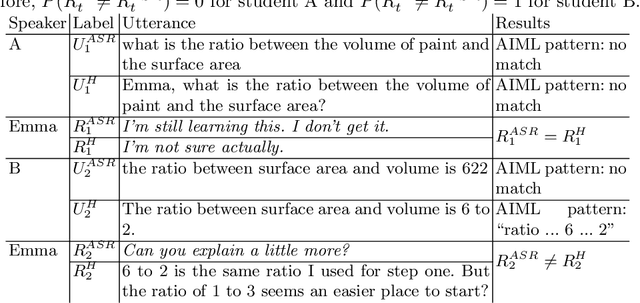Impact of Experiencing Misrecognition by Teachable Agents on Learning and Rapport
Paper and Code
Jun 11, 2023

While speech-enabled teachable agents have some advantages over typing-based ones, they are vulnerable to errors stemming from misrecognition by automatic speech recognition (ASR). These errors may propagate, resulting in unexpected changes in the flow of conversation. We analyzed how such changes are linked with learning gains and learners' rapport with the agents. Our results show they are not related to learning gains or rapport, regardless of the types of responses the agents should have returned given the correct input from learners without ASR errors. We also discuss the implications for optimal error-recovery policies for teachable agents that can be drawn from these findings.
* Accepted to AIED 2023
 Add to Chrome
Add to Chrome Add to Firefox
Add to Firefox Add to Edge
Add to Edge